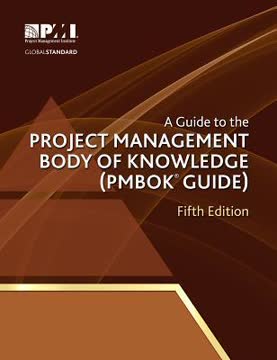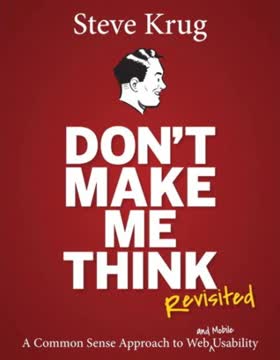Key Takeaways
1. Project Management is an Art of Balancing Paradoxes
"The less-than-surprising truth about the origins of ideas is that they come from people."
Project management is dynamic. It requires navigating conflicting demands and expectations. Successful project managers must balance ego with humility, autocracy with delegation, and ambiguity with precision. They need to be patient yet impatient, courageous yet fearful, and both believers and skeptics.
This balancing act extends to various aspects of project management:
- Maintaining optimism in vision while being skeptical in scheduling
- Acknowledging complexity while championing simplicity
- Excelling in both oral and written communication
- Tolerating ambiguity in early stages while pursuing perfection in execution
2. Effective Communication is the Foundation of Project Success
"If you can't communicate, you can't succeed."
Communication is multifaceted. It involves not just transmitting information, but ensuring it is received, understood, agreed upon, and converted into useful action. Project managers must master various communication channels and adapt their style to different stakeholders.
Key aspects of effective communication:
- Active listening and reflection
- Clarifying assumptions and avoiding jargon
- Using visual aids and prototypes to convey ideas
- Facilitating productive meetings and discussions
- Building and maintaining relationships across the team
3. Vision and Planning Set the Stage for Project Execution
"A vision document encapsulates all available thinking about what a project might be into a single composition."
Vision guides action. A well-crafted vision document simplifies complex ideas, sets clear goals, and inspires the team. It should be concise, goal-driven, consolidated, inspirational, and memorable. The planning process should involve multiple perspectives: business, technology, and customer.
Elements of effective vision and planning:
- Clearly defined problem statements and scenarios
- Prioritized features and requirements
- Consideration of constraints and resources
- Flexibility to adapt to changing circumstances
- Regular checkpoints for review and adjustment
4. Good Ideas Come from Diverse Perspectives and Iteration
"Bad ideas lead to good ideas."
Innovation requires exploration. The best solutions often emerge from a process of generating many ideas, including seemingly bad ones, and refining them through iteration. Project managers should create an environment that encourages diverse thinking and experimentation.
Strategies for fostering creativity:
- Brainstorming sessions with clear rules (e.g., "Yes, and...")
- Prototyping and rapid iteration
- Cross-functional collaboration
- Embracing failure as a learning opportunity
- Regular design reviews and feedback loops
5. Decision-Making Requires Clarity, Courage, and Context
"Good decision makers don't waste time optimizing things that don't need to be optimized."
Decisions drive progress. Effective decision-making involves understanding the stakes, gathering relevant information, and having the courage to act. Project managers must balance the need for thorough analysis with the pressure to move quickly.
Key aspects of good decision-making:
- Clearly defining the problem and desired outcome
- Considering multiple alternatives
- Evaluating potential risks and consequences
- Seeking input from relevant stakeholders
- Making timely decisions and communicating them clearly
6. Well-Crafted Specifications Bridge Vision and Implementation
"Good specifications simplify."
Specifications guide execution. They translate high-level vision into actionable plans for the team. Well-written specifications clarify expectations, reduce misunderstandings, and provide a basis for measuring progress.
Elements of effective specifications:
- Clear description of functionality and user experience
- Technical details and architecture considerations
- Prioritized features and requirements
- Testable criteria for success
- Flexibility to accommodate necessary changes
7. Handling Crises Demands Responsibility and Emotional Intelligence
"Taking responsibility for something doesn't make it your fault: it means that you will be accountable for resolving the situation."
Crises test leadership. When things go wrong, project managers must take responsibility, stay calm, and guide the team through the challenge. This requires emotional intelligence to manage both personal stress and team dynamics.
Strategies for crisis management:
- Quickly assessing the situation and prioritizing actions
- Communicating clearly and transparently with stakeholders
- Delegating tasks and empowering team members
- Maintaining a positive attitude and supporting team morale
- Learning from the experience to prevent future crises
8. Non-Annoying Processes, Emails, and Meetings Drive Productivity
"Good process provides a system that people can depend and base decisions on."
Efficiency stems from streamlined operations. Well-designed processes, concise emails, and focused meetings can significantly boost team productivity. Project managers should continuously refine these elements to minimize frustration and maximize value.
Tips for non-annoying project management:
- Create processes that accelerate progress and prevent problems
- Write clear, actionable emails with relevant information
- Run meetings with clear agendas and active facilitation
- Regularly solicit feedback on team processes and communication
- Be willing to adapt and improve based on team input
</instructions>
Last updated:
FAQ
What's Making Things Happen: Mastering Project Management about?
- Comprehensive Guide: The book is a detailed guide to mastering project management, focusing on practical strategies and real-world applications.
- Real-World Examples: It includes anecdotes and lessons from Scott Berkun's experiences at Microsoft, making the content relatable and applicable.
- Broad Applicability: While rooted in software development, the principles are applicable across various industries, enhancing its value for diverse readers.
Why should I read Making Things Happen: Mastering Project Management?
- Practical Advice: Offers actionable strategies that can be immediately implemented to improve project management skills.
- Enhances Team Dynamics: Focuses on trust and communication, crucial for achieving project goals and maintaining a positive work environment.
- Broad Appeal: Relevant for both novice and experienced project managers across different industries and project types.
What are the key takeaways of Making Things Happen: Mastering Project Management?
- Importance of Trust: Trust is essential for successful project management, fostering better collaboration and decision-making.
- Effective Prioritization: Creating ordered lists helps teams focus on what truly matters, driving progress.
- Learning from Failure: Encourages learning from past mistakes to gain valuable insights for future projects.
What are the best quotes from Making Things Happen: Mastering Project Management and what do they mean?
- "The simpler your view...": Highlights the importance of maintaining a clear and straightforward approach to enhance effectiveness.
- "Trust is insurance against adversity.": Emphasizes that building trust within a team creates resilience against challenges.
- "The world responds to action...": Stresses the need for proactive leadership to drive teams toward achieving results.
How does Scott Berkun define project management in Making Things Happen?
- Practical Approach: Defines project management as the art of getting things done through effective leadership, organization, and communication.
- Core Tasks: Outlines tasks like planning, scheduling, requirements gathering, and crisis management.
- Interdisciplinary Nature: Draws from various fields, including psychology, business, and engineering, to manage projects effectively.
What is the role of a project manager according to Making Things Happen?
- Leadership and Coordination: Responsible for leading the team and ensuring alignment with project goals.
- Decision-Making Authority: Makes critical decisions regarding project direction and resource allocation.
- Communication Hub: Serves as the primary point of communication between team members and stakeholders.
What is the significance of trust in project management according to Berkun?
- Foundation of Leadership: Trust allows team members to rely on each other, fostering a collaborative environment.
- Building Commitments: Built through consistent behavior and fulfilling commitments, enhancing team morale.
- Navigating Difficult Decisions: Established trust leads to team support for difficult decisions, even if there are disagreements.
How does Berkun suggest handling changes in project management?
- Change Control Process: Advocates for a structured process like a Design Change Request (DCR) system to manage changes.
- Assessing Impact: Evaluates the potential impact on project goals and timelines before implementing changes.
- Communicating Changes: Stresses the importance of informing the team and involving them in decision-making to maintain trust.
What are the common mistakes in project management highlighted in Making Things Happen?
- Ignoring History: Failing to learn from past projects can lead to repeating mistakes.
- Over-Reliance on Processes: Warns against fixating on processes, which can stifle creativity and adaptability.
- Poor Communication: Lack of clear communication can lead to misunderstandings and jeopardize project success.
How does Making Things Happen suggest managing ideas during a project?
- Structured Checkpoints: Recommends clear checkpoints to manage the flow of ideas and maintain focus.
- Encouraging Collaboration: Emphasizes open communication among team members to foster creativity and innovation.
- Iterative Process: Advocates for continuously refining ideas based on feedback and new insights.
What is the affinity diagram method mentioned in Making Things Happen?
- Organizing Ideas: A visual tool to organize ideas and identify relationships, aiding effective brainstorming.
- Facilitating Collaboration: Encourages team collaboration by allowing idea contribution without immediate judgment.
- Iterative Process: Allows for regrouping ideas as discussions evolve, leading to clearer project goals.
How can I improve my project management skills based on Making Things Happen?
- Practice Active Learning: Reflect on past projects to identify areas for improvement.
- Seek Feedback: Regularly solicit feedback from team members and stakeholders for diverse perspectives.
- Embrace Flexibility: Adapt approaches and methodologies based on specific project needs rather than rigid adherence.
Review Summary
Making Things Happen is highly regarded as a practical guide to project management, particularly in software development. Readers appreciate its real-world examples, actionable advice, and comprehensive coverage of topics like planning, leadership, and team dynamics. The book's method-agnostic approach and focus on the human aspects of project management are praised. While some find it occasionally wordy or outdated, most consider it an essential resource for both novice and experienced project managers. The book's exercises and thought-provoking questions are seen as valuable tools for applying the concepts in real-life situations.
Similar Books









Download PDF
Download EPUB
.epub digital book format is ideal for reading ebooks on phones, tablets, and e-readers.







